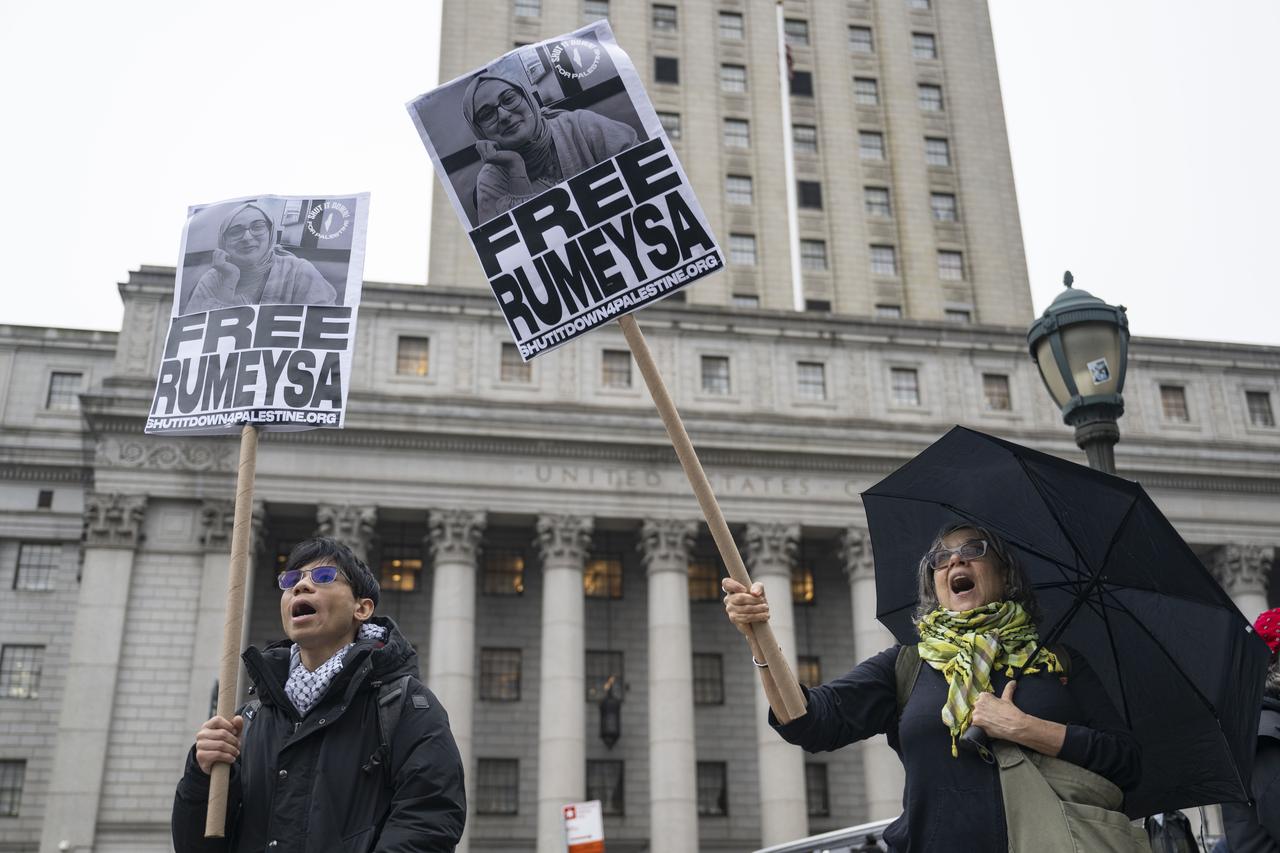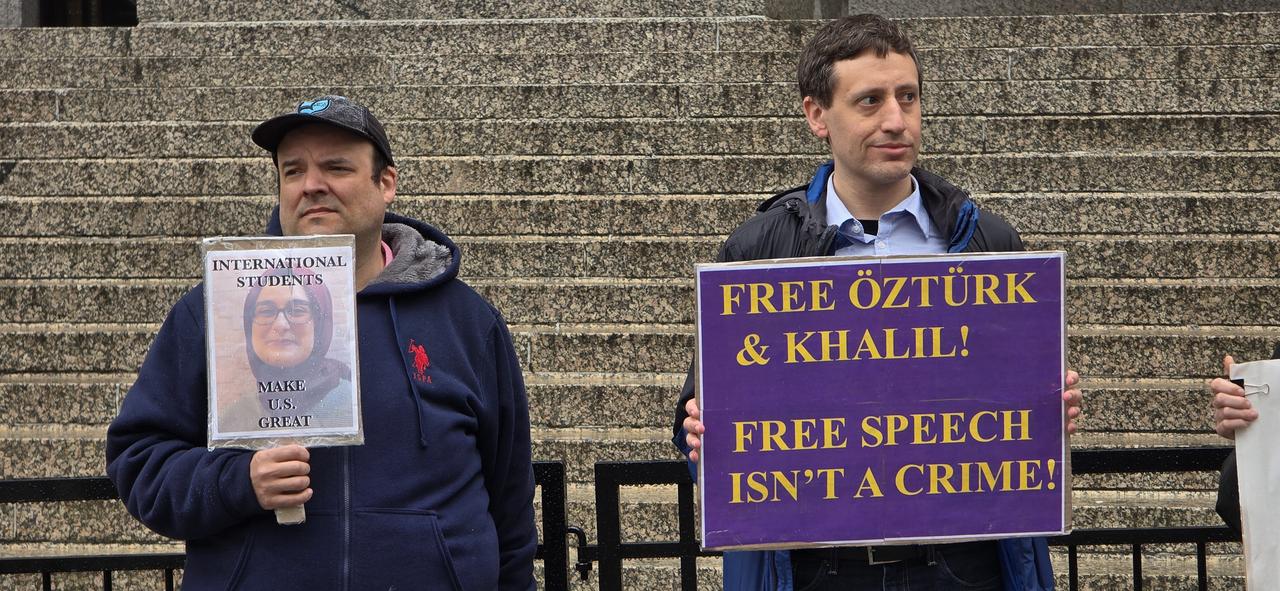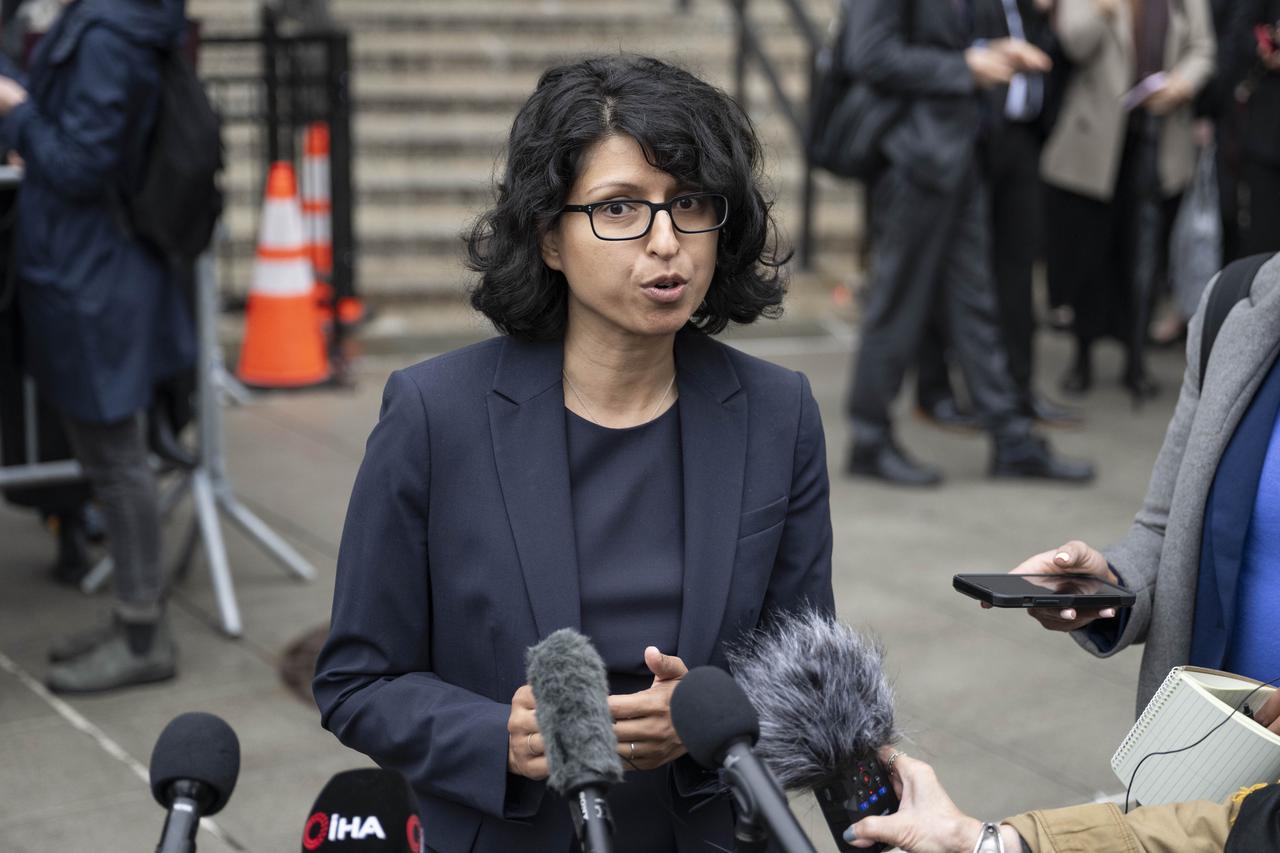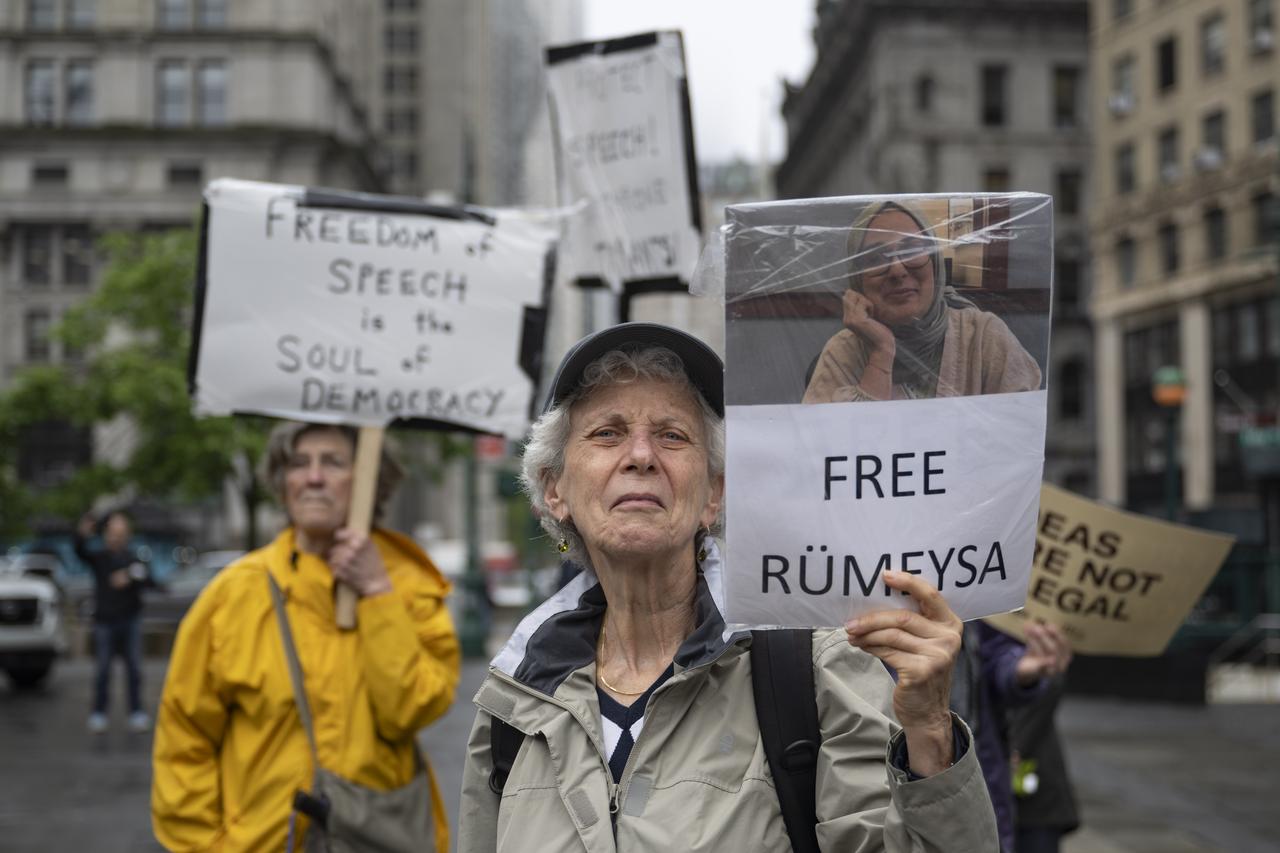
In the case of Rumeysa Ozturk, a Turkish PhD student at Tufts University, the U.S. Second Circuit Court of Appeals heard arguments regarding her detention. The government lawyers failed to provide a valid justification for Ozturk's detention, despite claims that she had supported Palestine.

During the appeal hearing in New York, lawyers representing the U.S. government were unable to provide evidence or valid reasons for Ozturk's arrest, which had occurred in March 2024, citing her support for Palestine. The government had also failed to argue that her detention was lawful, despite multiple opportunities to do so.
The judges did not issue a ruling during the hearing, but stated that they would take the arguments "under advisement." The decision on whether Ozturk should be released on bail is expected to come before her scheduled hearing in Vermont on May 9.
Representing the U.S. government, attorneys argued that the case should fall under the jurisdiction of immigration courts rather than federal courts. They did not comment on the specific reasons for Ozturk’s visa revocation or her arrest, despite being asked multiple times.
However, Ozturk’s legal team argued that she should be allowed to attend her bail hearing in Vermont in person. The defense emphasized that her detention is unjustified, pointing out that she had been held for over six weeks without due process.

Esha Bhandari, an attorney from the American Civil Liberties Union (ACLU) representing Ozturk, criticized the government’s actions. "The government has had multiple opportunities to explain why they detained Ozturk, and yet they have never once addressed the fact that she was detained for writing an op-ed in support of Palestine," Bhandari said.
Bhandari also highlighted the unconstitutional nature of Ozturk's detention. "Being detained for writing an article is unconstitutional," she added. "We are urging the court to allow her release while the legal matters are sorted out."

Outside the courthouse, supporters of Ozturk gathered, calling for her release. Protesters held signs reading "Free Rumeysa" and expressed concerns about the U.S. government’s immigration policies.
They argued that Ozturk’s arrest was illegal and unconstitutional, asserting that such actions should not be tolerated.

Ozturk, a Fulbright scholar and a student at Tufts University, was detained by U.S. Immigration and Customs Enforcement (ICE) agents on March 25 while walking to an iftar dinner with friends in Somerville, Massachusetts.
ICE officials claimed that her detention was linked to her alleged support for Hamas, but no clear evidence has been presented in court.
Court documents revealed that Ozturk faced significant difficulties during her detention in Louisiana. She suffered multiple asthma attacks and was denied access to necessary medication for the first two weeks. Additionally, her headscarf was confiscated, and she experienced degrading treatment and poor living conditions, including inadequate food and sleep.

Tufts University has expressed its concern over Ozturk’s detention, with university officials calling for her immediate release. Tufts University President Sunil Kumar noted that Ozturk’s detention had "paralyzed" the international community at the university and raised security concerns.
"Rumeysa is a valuable member of the Tufts community, and we believe she should be allowed to continue her doctoral studies while the legal process unfolds," Kumar said in a statement.